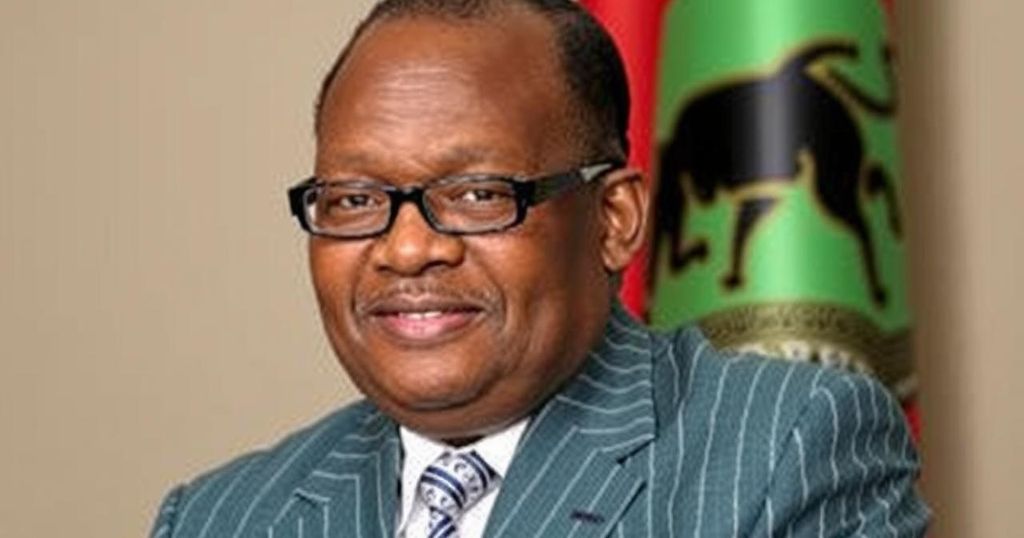Nandi-Ndaitwah Denies Allegations of Zimbabwean Interference in Namibia’s Elections

Netumbo Nandi-Ndaitwah, Namibia’s first female President-elect, has rejected allegations of Zimbabwe influencing Namibia’s recent elections, labeled by opposition parties as unfounded. Concerns were raised about ballot paper shortages mirroring past Zanu-PF tactics in Zimbabwe. Nandi-Ndaitwah called the claims part of a conspiracy against Swapo. The elections faced logistical issues impacting voter turnout, but both Zanu-PF and Swapo officials denied any malpractice.
Netumbo Nandi-Ndaitwah, Namibia’s first female President-elect, has categorically rejected allegations regarding Zimbabwe’s interference in the country’s recent presidential and National Assembly elections. These accusations were levied by five Namibian opposition parties, including the Independent Patriots for Change, Landless People’s Movement, and Affirmative Repositioning, who supposed that members of Zimbabwe’s ruling Zanu-PF party influenced the election results that led to a victory for the ruling Swapo party. Without providing definitive evidence, the opposition expressed apprehension about potential outside interference, particularly highlighting issues such as a shortage of ballot papers that they argued mirrored questionable tactics employed by Zanu-PF during prior elections in Zimbabwe.
LPM leader Ivan Skrywer drew parallels between the logistical challenges faced in Namibia and similar tactics purportedly used by Zanu-PF to sway election outcomes. Additionally, IPC spokesperson Imms Nashinge raised concerns over a social media post by a Zimbabwean official, which prematurely announced Swapo’s victory, questioning the legitimacy of Zimbabwean interest in Namibian electoral processes. In response, Nandi-Ndaitwah deemed these allegations as unfounded and part of a deliberate campaign to undermine Swapo’s credibility.
In her remarks made in Windhoek, she called upon investigative journalists to explore the claims, asserting, “Those saying it, they know it’s not true, but they are saying it deliberately to confuse our people”. The recent elections were not without their difficulties; logistical complications, including insufficient ballot papers and malfunctioning equipment, contributed to long lines and voting delays, causing concerns among the opposition about reduced voter turnout, particularly in the Khomas region. Critics also directed attention towards the Electoral Commission of Namibia, questioning their preparedness and the legality behind the two-day extension of voting. Despite the controversies surrounding the elections, officials from both Zanu-PF and Swapo dismissed the allegations of wrongdoing, with Zanu-PF secretary-general Obert Mpofu labeling the claims as indicative of “primitive thinking.”
The political landscape in Namibia has been under examination following the recent presidential and National Assembly elections, during which logistical difficulties and accusations of external interference came to the forefront of public discourse. With allegations of Zimbabwean involvement in Namibian elections echoing concerns from opposition parties, the situation reflects broader regional tensions and the complexities of governance in Southern Africa. Despite the controversies, the ruling party, Swapo, continues to assert its legitimacy and integrity through the electoral process, amid calls for greater accountability and transparency in elections.
In conclusion, the allegations of Zimbabwe’s interference in Namibia’s elections have sparked significant debate, with opposition parties expressing concerns regarding the fairness and transparency of the electoral process. President-elect Netumbo Nandi-Ndaitwah’s robust denial of these claims underscores a broader narrative of governance challenges in the region. As both logistical issues and external meddling concerns persist, the credibility of Namibia’s electoral system continues to be scrutinized, necessitating thorough investigations and open dialogues to uphold democratic principles.
Original Source: newscentral.africa






